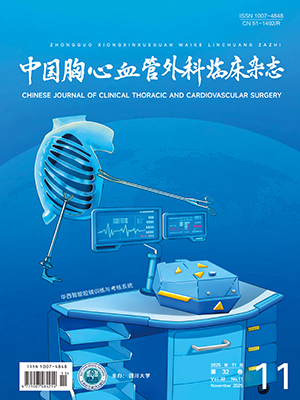| 1. |
Thai AA, Solomon BJ, Sequist LV, et al. Lung cancer. Lancet, 2021, 398(10299): 535-554.
|
| 2. |
Sies H. Oxidative stress: a concept in redox biology and medicine. Redox Biol, 2015, 4: 180-183.
|
| 3. |
Wang J, Lu Q, Cai J, et al. Nestin regulates cellular redox homeostasis in lung cancer through the Keap1-Nrf2 feedback loop. Nat Commun, 2019, 10(1): 5043.
|
| 4. |
Jan YH, Lai TC, Yang CJ, et al. Adenylate kinase 4 modulates oxidative stress and stabilizes HIF-1α to drive lung adenocarcinoma metastasis. J Hematol Oncol, 2019, 12(1): 12.
|
| 5. |
Xu K, Ma J, Hall SRR, et al. Battles against aberrant KEAP1-NRF2 signaling in lung cancer: intertwined metabolic and immune networks. Theranostics, 2023, 13(2): 704-723.
|
| 6. |
Camiña N, Penning TM. Genetic and epigenetic regulation of the NRF2-KEAP1 pathway in human lung cancer. Br J Cancer, 2022, 126(9): 1244-1252.
|
| 7. |
Le X, Mu J, Peng W, et al. DNA methylation downregulated ZDHHC1 suppresses tumor growth by altering cellular metabolism and inducing oxidative/ER stress-mediated apoptosis and pyroptosis. Theranostics, 2020, 10(21): 9495-9511.
|
| 8. |
Davies NM, Holmes MV, Davey Smith G. Reading Mendelian randomisation studies: a guide, glossary, and checklist for clinicians. BMJ, 2018, 362: k601.
|
| 9. |
Lawlor DA. Commentary: two-sample Mendelian randomization: opportunities and challenges. Int J Epidemiol, 2016, 45(3): 908-915.
|
| 10. |
Zhu Z, Zhang F, Hu H, et al. Integration of summary data from GWAS and eQTL studies predicts complex trait gene targets. Nat Genet, 2016, 48(5): 481-487.
|
| 11. |
Li Y, Sundquist K, Zhang N, et al. Mitochondrial related genome-wide Mendelian randomization identifies putatively causal genes for multiple cancer types. EBioMedicine, 2023, 88: 104432.
|
| 12. |
Qiu X, Hou QH, Shi QY, et al. Identification of hub prognosis-associated oxidative stress genes in pancreatic cancer using integrated bioinformatics analysis. Front Genet, 2020, 11: 595361.
|
| 13. |
Sun X, Huang X, Sun X, et al. Oxidative stress-related lncRNAs are potential biomarkers for predicting prognosis and immune responses in patients with LUAD. Front Genet, 2022, 13: 909797.
|
| 14. |
Wang Y, McKay JD, Rafnar T, et al. Rare variants of large effect in BRCA2 and CHEK2 affect risk of lung cancer. Nat Genet, 2014, 46(7): 736-741.
|
| 15. |
Võsa U, Claringbould A, Westra HJ, et al. Large-scale cis- and trans-eQTL analyses identify thousands of genetic loci and polygenic scores that regulate blood gene expression. Nat Genet, 2021, 53(9): 1300-1310.
|
| 16. |
McRae AF, Marioni RE, Shah S, et al. Identification of 55, 000 replicated DNA methylation QTL. Sci Rep, 2018, 8(1): 17605.
|
| 17. |
Wu Y, Zeng J, Zhang F, et al. Integrative analysis of omics summary data reveals putative mechanisms underlying complex traits. Nat Commun, 2018, 9(1): 918.
|
| 18. |
Xu S, Li X, Zhang S, et al. Oxidative stress gene expression, DNA methylation, and gut microbiota interaction trigger Crohn's disease: a multi-omics Mendelian randomization study. BMC Med, 2023, 21(1): 179.
|
| 19. |
Giambartolomei C, Vukcevic D, Schadt EE, et al. Bayesian test for colocalisation between pairs of genetic association studies using summary statistics. PLoS Genet, 2014, 10(5): e1004383.
|
| 20. |
Ghafouri-Fard S, Noroozi R, Musavi M, et al. Association analysis between genomic variants within advanced glycation end product specific receptor (AGER) gene and risk of breast cancer in Iranian women. Heliyon, 2019, 5(10): e02542.
|
| 21. |
Walter KR, Ford ME, Gregoski MJ, et al. Advanced glycation end products are elevated in estrogen receptor-positive breast cancer patients, alter response to therapy, and can be targeted by lifestyle intervention. Breast Cancer Res Treat, 2019, 173(3): 559-571.
|
| 22. |
Omofuma OO, Peterson LL, Turner DP, et al. Dietary advanced glycation end-products and mortality after breast cancer in the women's health initiative. Cancer Epidemiol Biomarkers Prev, 2021, 30(12): 2217-2226.
|
| 23. |
Chiappalupi S, Sorci G, Vukasinovic A, et al. Targeting RAGE prevents muscle wasting and prolongs survival in cancer cachexia. J Cachexia Sarcopenia Muscle, 2020, 11(4): 929-946.
|
| 24. |
Tanaka T, Nguyen DT, Kwankaew N, et al. ATF6β deficiency elicits anxiety-like behavior and hyperactivity under stress conditions. Neurochem Res, 2023, 48(7): 2175-2186.
|
| 25. |
Barrón-Gallardo CA, Garcia-Chagollán M, Morán-Mendoza AJ, et al. A gene expression signature in HER2+ breast cancer patients related to neoadjuvant chemotherapy resistance, overall survival, and disease-free survival. Front Genet, 2022, 13: 991706.
|
| 26. |
Carreras-Torres R, Kim AE, Lin Y, et al. Genome-wide interaction study with smoking for colorectal cancer risk identifies novel genetic loci related to tumor suppression, inflammation, and immune response. Cancer Epidemiol Biomarkers Prev, 2023, 32(3): 315-328.
|
| 27. |
Wallace C. A more accurate method for colocalisation analysis allowing for multiple causal variants. PLoS Genet, 2021, 17(9): e1009440.
|




